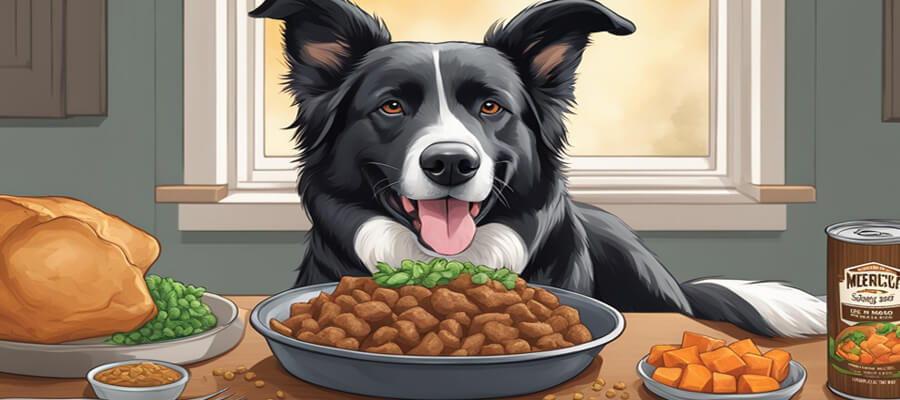
How to Keep Your Dog’s Diet Balanced and Nutrient-Rich
How to Keep Your Dog’s Diet Balanced and Nutrient-Rich for Optimal Health
Introduction
As a devoted dog owner, you want the best for your furry friend, and that includes a balanced and nutrient-rich diet. Proper nutrition is crucial for your dog's overall health, energy levels, and longevity. This guide will provide you with essential information on maintaining a well-rounded diet for your dog, ensuring they thrive and enjoy a happy, active life.
Understanding Your Dog’s Nutritional Needs
Dogs, like humans, require a variety of nutrients to maintain their health. These nutrients include:
- Proteins: Essential for growth, muscle development, and tissue repair. Look for high-quality protein sources such as chicken, beef, fish, and eggs.
- Fats: Necessary for energy, skin health, and the absorption of fat-soluble vitamins. Healthy fats can be found in fish oil, chicken fat, and flaxseed oil.
- Carbohydrates: While dogs are primarily carnivores, carbohydrates provide a good energy source. Opt for whole grains like brown rice, oats, and sweet potatoes.
- Vitamins and Minerals: Essential for various bodily functions, including immune support and bone health. A balanced dog food should contain a mix of these nutrients.
- Water: Perhaps the most critical nutrient, fresh water should always be available to keep your dog hydrated.
Choosing the Right Dog Food
Selecting the appropriate dog food is crucial for maintaining a balanced diet. Here are some tips to guide your choice:
- Look for AAFCO Approval: Ensure the food meets the standards set by the Association of American Feed Control Officials (AAFCO), indicating it provides complete and balanced nutrition.
- Read Ingredient Labels: High-quality dog foods will list specific meat sources as the first ingredient, followed by vegetables, grains, and other nutrients.
- Consider Your Dog’s Life Stage: Puppies, adults, and senior dogs have different nutritional needs. Choose food formulated for your dog's specific age group.
- Check for Nutrient Additives: Look for foods fortified with essential vitamins and minerals. Omega-3 fatty acids are also beneficial for skin and coat health.
- Consult with Your Veterinarian: If you have any concerns about your dog's diet, seek advice from your vet, who can recommend suitable foods based on your pet’s health and lifestyle.
Incorporating Homemade Meals
If you're considering preparing homemade meals for your dog, follow these guidelines to ensure their diet remains balanced:
- Consult with a Veterinarian or Pet Nutritionist: Before making homemade meals, get professional advice to ensure you're meeting all nutritional needs.
- Use High-Quality Ingredients: Choose fresh, high-quality meats, vegetables, and grains. Avoid processed foods and those that contain additives or fillers.
- Maintain Balance: Aim for a mix of proteins, fats, and carbohydrates. A general rule is to include 40% protein, 50% carbohydrates, and 10% healthy fats.
- Supplement as Needed: Depending on the ingredients you use, you may need to add supplements for vitamins and minerals. Consult your vet for recommendations.
- Monitor Portion Sizes: Homemade diets can lead to overfeeding. Measure portions according to your dog's size, activity level, and nutritional needs.
Healthy Treats and Snacks
Treats can be a great way to reward your dog, but they should not exceed 10% of their daily caloric intake. Consider these options for healthy treats:
- Vegetables: Carrots, green beans, and sweet potatoes are nutritious and low-calorie options.
- Fruits: Apples, blueberries, and bananas can be offered in moderation, as they provide vitamins and antioxidants.
- Commercial Dog Treats: Choose treats made from whole ingredients and avoid those with artificial additives or high levels of sugar.
- Homemade Treats: You can make simple dog treats at home using ingredients like peanut butter, pumpkin, and oats. Ensure they are healthy and dog-safe.
Monitoring Your Dog’s Weight and Health
Maintaining a balanced diet is not just about what you feed your dog; it also involves monitoring their health. Regularly check your dog's weight and body condition:
- Weight Management: Keep track of your dog’s weight and adjust their food intake as needed. Obesity can lead to various health issues.
- Regular Vet Check-Ups: Schedule annual veterinary visits to monitor your dog’s health, including weight, dental health, and overall well-being.
- Observe Behavior and Energy Levels: A balanced diet should reflect in your dog’s energy levels and general behavior. If you notice changes, consult your vet.
- Adjust Diet Based on Life Changes: If your dog's activity level changes (e.g., due to aging or health issues), adjust their diet accordingly.
Conclusion
Keeping your dog’s diet balanced and nutrient-rich is essential for their overall health and happiness. By choosing high-quality commercial foods or preparing homemade meals, monitoring their weight, and providing healthy treats, you can ensure your furry friend receives the nutrition they need to thrive. Always consult with your veterinarian for personalized advice and adjustments to your dog's diet to promote a long and healthy life.
Affiliate Products
